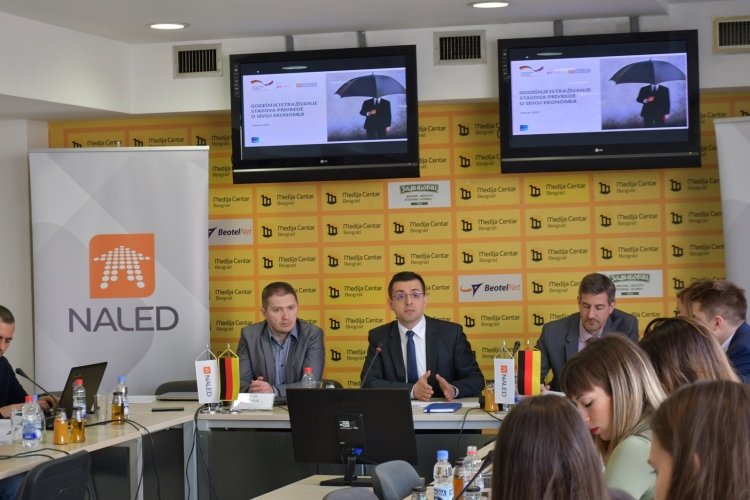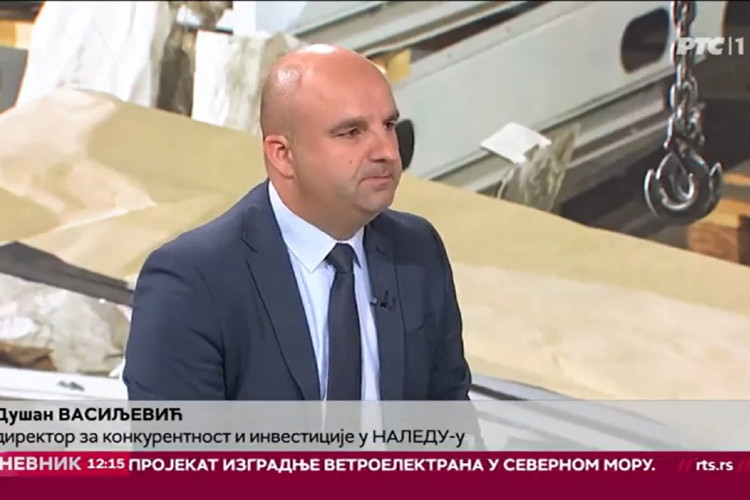The Ukraine crisis exposes major weakness of Serbia's economy
The Serbian economy is among the most energy-intensive economies in Europe and consumes large amounts of energy to produce one unit of gross domestic product. In other words, our energy efficiency is at a very low level, even four times lower than the EU average. That is why it is not surprising that businessmen in NALED are unanimous in the latest poll that the war in Ukraine will have negative consequences for our economy.
The domestic economy is highly dependent on importing energy. Data from the energy balance of Serbia for 2020 show that Serbia provides three quarters of the required quantities of crude oil from imports, while it pays a quarter from domestic, primary production. Out of the total value of oil we import, almost two-fifths come from Iraq, and about a third from Russia and Kazakhstan, according to data from the Republic Bureau of Statistics.
When it comes to Russia in particular, we procure as much as 81% of the needed quantities of gas and 18% of oil and oil derivatives from that country. As the impact of the crisis is primarily reflected through inflation, i.e. rising prices of energy and products and services in sectors that primarily use energy in production, businesses estimate that energy and transport will be most affected, followed by agriculture and food industry, construction and finally trade.
- The attitudes of surveyed businesses are very indicative. Almost 70% point out the issues of possible interruptions in the supply of raw materials and raw materials, primarily energy, rising energy prices and inflation as key challenges. Slightly more than half expect the crisis and market disruptions to last up to two years and another fifth believe the impact will be felt longer, while the rest are more optimistic and expect the negative effects to end within a year - says Vladislav Cvetković, President of NALED Managing Board and Business Advisory Director at PricewaterhouseCoopers.
According to him, although businesses expect very negative or moderately negative effects on the entire economy, they are far more optimistic when assessing the impact of the crisis on their own company - three quarters expect only moderately negative consequences. As many as 88% do not expect to change the number of employees, and the largest part (44%) do not expect changes in the amount of income, because they are primarily focused on the domestic and EU markets.
- Slightly more than half of our surveyed members, 56% of them, see the response of the Government of Serbia and the introduced measures as somewhat adequate, while a third are completely satisfied. Bearing in mind that they are very worried about the growth of prices, they expected the best assessment of measures such as limiting the prices of petroleum products and limiting the prices of gas, which is supported by more than two thirds of businessmen. The following are measures such as lowering excise duties on oil derivatives, abolition of customs duties on oil imports and measures of the National Bank against inflation - Cvetković points out.
In order to preserve the continuity of business, in addition to the existing Government’s measures, businesses are proposing a new one - the introduction of additional guarantees and credit lines for companies’ working capital. According to Cvetković, this type of support to citizens and businesses is widely applied by other countries, including France, Montenegro and Northern Macedonia.
Although it is not possible to reliably estimate the losses and negative impact of the conflict in Ukraine on the domestic economy, it is evident that economic growth this year will be below the planned 4%, while inflation will be higher than projected given that it exceeded 9% in March. In addition, basic macroeconomic indicators, such as public debt, foreign trade and fiscal deficits, will deteriorate, and the reduction of foreign direct investment and foreign exchange reserves is quite certain. On the other hand, the crisis can bring certain positive effects and economic benefits, considering that a certain number of companies, which operate in Russia, are transferring their business to Serbia as well.
The survey included 37 members, primarily export-oriented. Only complete answers were taken into account, and although the sample is not representative, it is still a good indication of the views of businesses. In addition to Serbia, the surveyed members do business primarily with the countries of the Western Balkans and the European Union, while Ukraine and Russia appear significantly less as their markets. Among the surveyed companies are mostly members from the agricultural and food industry, and the sample also includes representatives of other industries such as machine engineering, tobacco, construction, mining, as well as the service sector (banks, IT companies, etc.).



